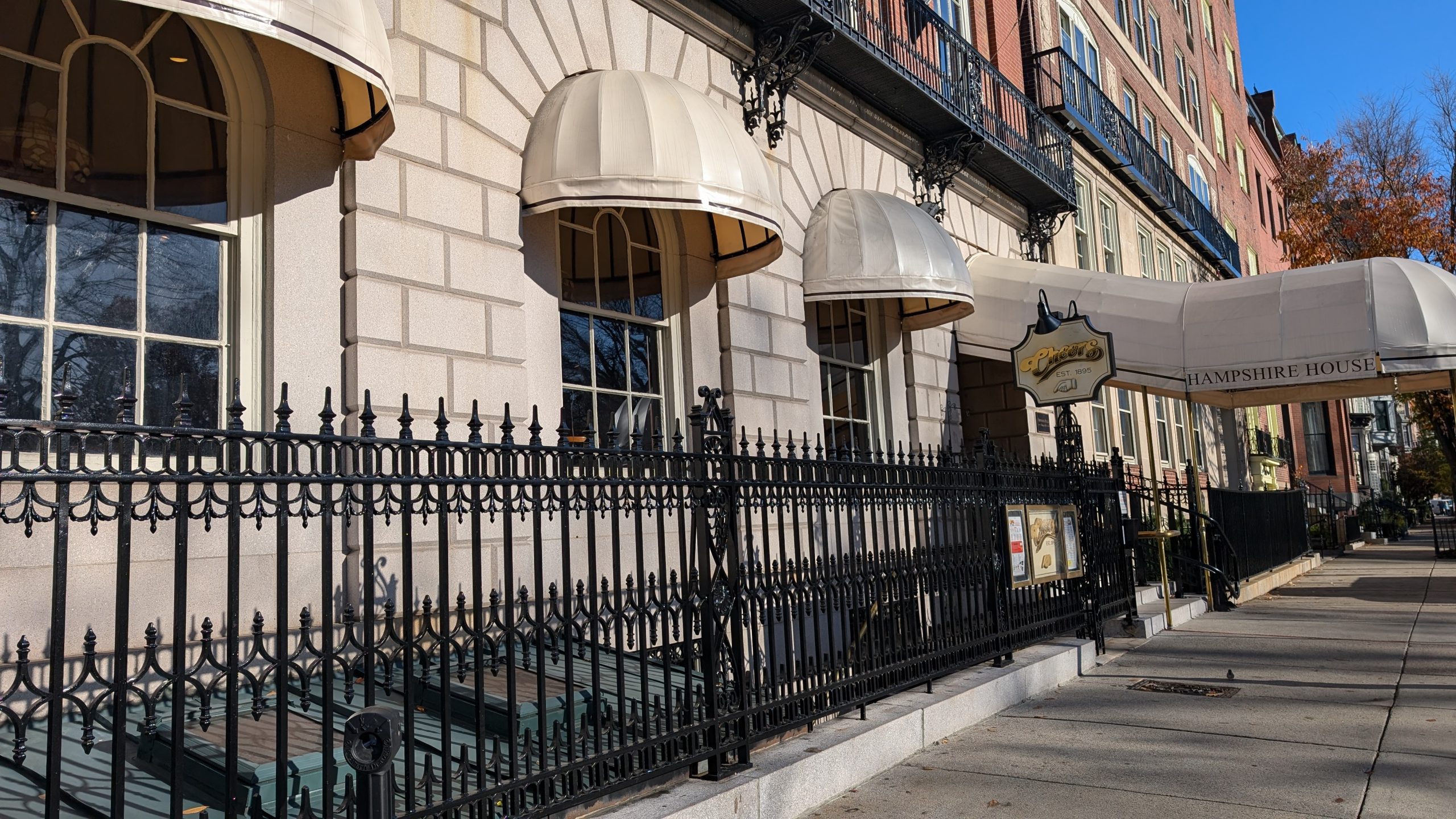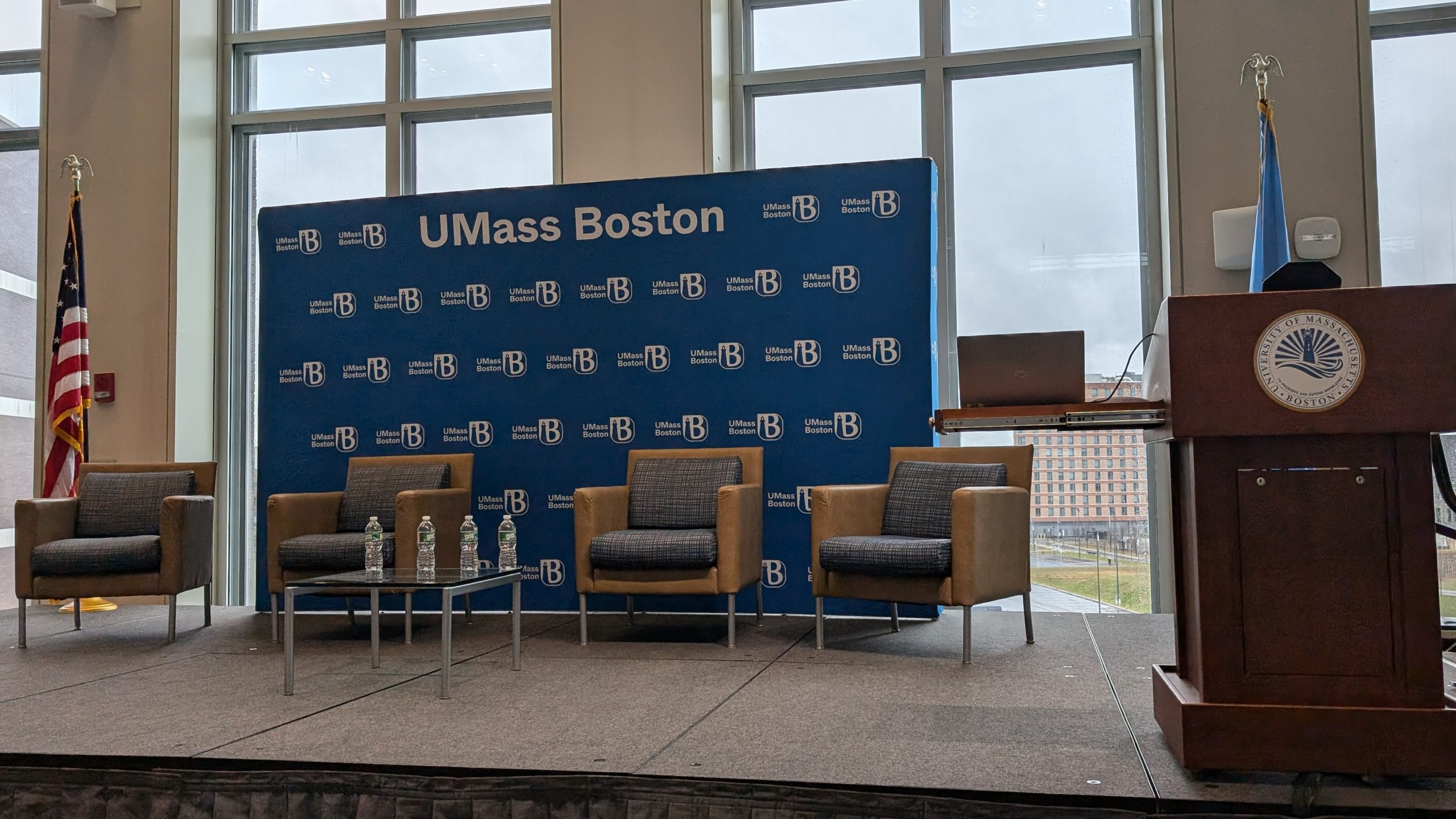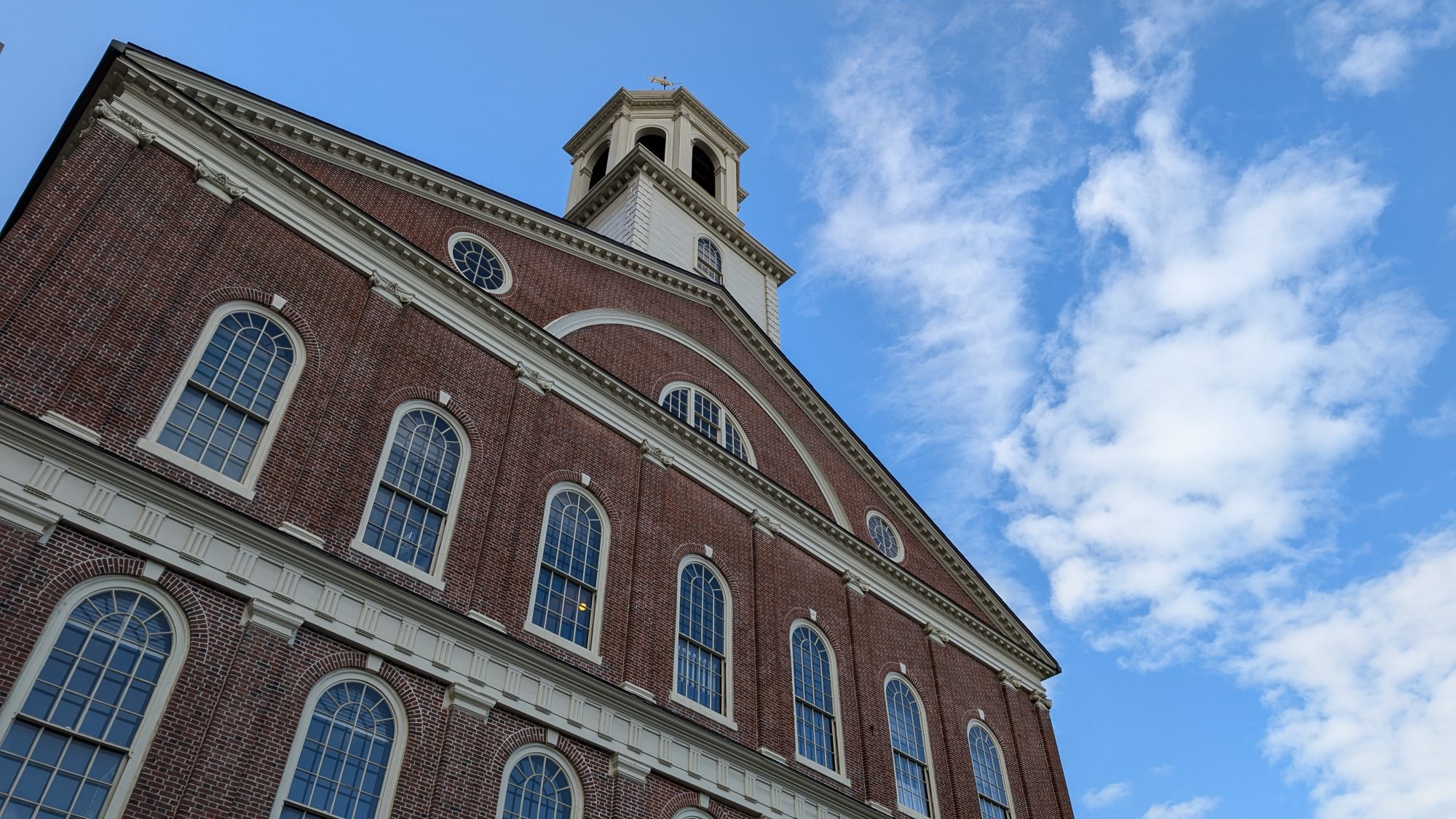Does everybody know my name here? No, demonstrably not. I mean, I’m having to wear a name badge. Are they glad I came? Questionable. I can be a bit annoying. But I am an invited panelist, so maybe.

Those of a certain age (or who have Channel 4 on in the morning while getting ready for work) will have realized by now from my clunky introduction that I am here in Boston! Home of Cheers. And home to one of the sexiest accents, apparently. Although I find that very hard to believe. Incidentally, that same survey found the British accent to be the best and sexiest in the world, which suggests to me that vast swathes of said world were not surveyed at all.
Anyway, I am here at the Association of College Unions International (ACUI) conference hosted at the University of Massachusetts (thanks auto-correct for that last bit…). This is an annual gathering as part of the ACUI’s mission to support college and university unions and student engagement professionals in their service to students and in the advancement of campus community. The theme this year, you will not be at all surprised to learn, is Rediscovering our why. The notion is that we reflect upon where we are as a sector after the many jolts we’re had recently.
This is actually my second time in Boston. The last time I was over was about seven years ago and I was visiting the incredible Olin College of Engineering. It’s a visit that I have gone on about too many times really, but in terms of my academic development, is one of those ‘Inside Out’ Core Memory experiences. Something that has very much influenced my approach ever since particularly around assessment and multidisciplinary project work.
This time, I was invited to take part in a fireside chat in a small group of deans of student affairs. It was a lot of fun, and we were quizzed by a hall full of delegates on topics ranging from pressing sectoral challenges to student comms to mental health supports to the future of HE. It was a privileged opportunity to talk a little about my own journey in HE, what keeps me going, the interesting developments in the Irish context, and where I think we as a sector need to work harder. The latter is mainly around bridging the gap between students expectations of HE, society’s expectations of what universities should be doing, and our own – and what we should be thinking about to meet in the middle.

I’ve also been able to pop into some other sessions while I’m here, such as one on supporting strategic alignment in our teams and another on the great work UAL have done to support their students. The final pecha kucha presentations from Student Union leaders on community building was fast-paced fun.
In a roundabout way, this reminded me of the recent interview I’ve just read between Paul Mescal and Ridley Scott which popped into my head while I was on stage. Scott is 86 now, and still going strong. In the interview, it’s very clear that he never lost the ‘why’ of his work. He’s driven and continually moving forward. I like that idea of just cracking on and doing it, and touched upon this in the panel session too – particularly around the pace of change that we need to keep up with. As as aside, I also liked how he said that “You have an idea of whether you are off-mark or on-plan”. I think that’s true. From my perspective I know if a paper or lecture is working or it isn’t. People often say ‘trust your instincts’, which I’ve never fully been on board with. Sometimes your instincts suck. Experience is what you are really trusting. And for a man who claims he doesn’t “give a shit” about what you all think, Scott clearly listens to others and works in a team. And is constantly learning and trying new things.
Back to the panel. For me, it’s not about rediscovering our why. It’s about being more effective at saying why the why is so important. I’ve said this before elsewhere, but as a sector we need to be better at articulating the benefits of university for everyone in a way that resonates with people off campus. Of course that means showing how higher education transforms you as a person, and provides more opportunities. But we also need to show how someone who doesn’t go to university will benefit when others do. Obviously we know this, and there are myriad benefits. But how tangible are they?
Let me give you an example that I was very loosely involved with a while ago. Do nurses need degrees? It’s a debate that keeps coming back, but where the most recent campaign to support this was effective, was that the argument as to why they do – because modern nursing is more complex than people appreciate, that clinical decision-making, which nurses do every day, requires critical skills, that the data shows that mortality rates drop when nurses have degrees – was made by the nursing bodies and nurses themselves. So it becomes more compelling. It’s too easy to dismiss academics or university leaders as being out-of-touch, not living in the real world, or that they have a vested interest in people studying for degrees.
As I reflect on the day and our session, perhaps one of the strongest messages that I felt was that it doesn’t matter if you’re working in Ireland, the US or the UK, we all have similar challenges but also a strong drive to support our students to be successful and to enjoy their time at university. Which all sounds terribly simple when I type it out. Which is the only way I’ll put this because it would seem that, in America at least, my accent is just too distracting…
